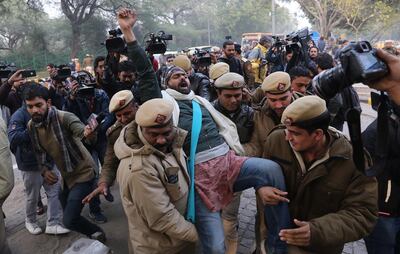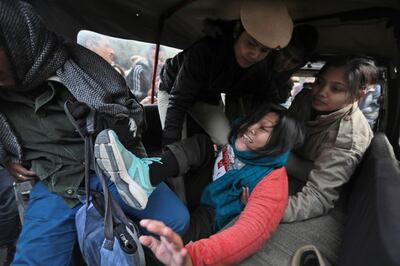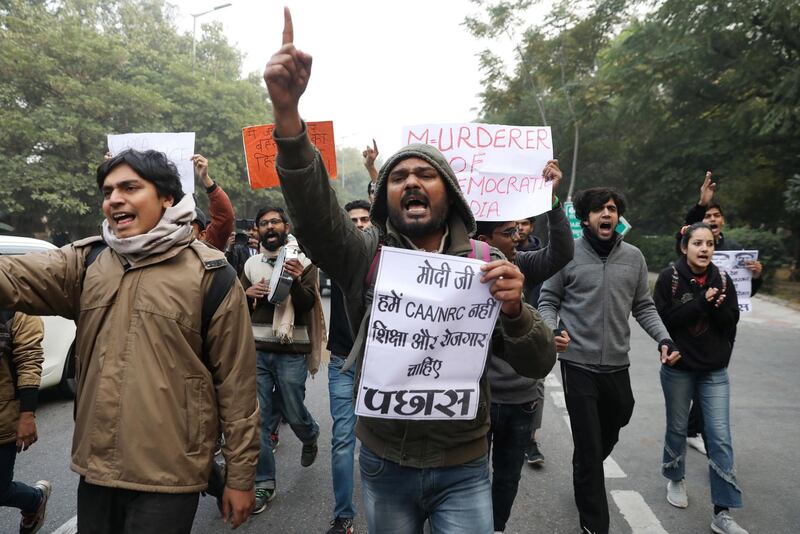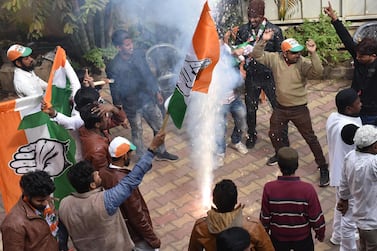Haji Hamid Ali’s eyes well with tears every time he talks about the night when he says dozens of armed police barged into his three-storey house, vandalised it beyond repair and detained his son.
Protesters say police went on an hours-long rampage across Muslim-dominated areas of Muzaffarnagar, a city in the north Indian state of Uttar Pradesh, after protests this month.
Hundreds of thousands of Muslims took to the streets across India after Friday prayers on December 20 to decry a new law that grants Indian citizenship to people from certain religious groups in three neighbouring countries, but not Muslims.
Uttar Pradesh is the country’s most populous state with 200 million residents, of whom about 20 per cent are Muslim.
It was also where at least 19 people were killed during protests against the citizenship law.
That proposed law has been further compounded by the introduction of a national citizenship register, prompting fears that Muslims could be stripped of Indian citizenship.
The protests met a harsh response with the internet blocked in districts across the state. Authorities said that was to help end the unrest.
Only days later did the harrowing reports of police violence begin to come to light.
Mainstream media broadcast videos showing police attacking protesters, firing live ammunition and smashing up Muslim properties in Uttar Pradesh.

Muzaffarnagar’s Muslim residents say police stormed their homes and destroyed their possessions.
They claim it was a clear “act of vengeance” by the state’s government, which is led by a firebrand Hindu monk, Yogi Adityanath, who has promised an iron fist in response to protests.
“It is worse than anything that has happened in all the previous riots over the decades,” said Mr Ali, 73, as he lay in bed recovering.
"I have been living here for 40 years but never witnessed this barbarity."
More than a week later, his home still resembles a junkyard. “They did not spare a thing in this house. We do not have a cup left to drink tea,” said Mr Ali, who runs a timber business.
Shanno, 25, is seven months pregnant and had her world turned upside down by the protests.
Her husband, Noor Mohammad, a manual worker originally from Khalapur, was shot in the head on his way to work and died.
Police did not allow relatives to take his body home. They said the burial had to take place in another city, 60 kilometres away.
“I couldn’t even see his body. My daughter couldn’t see her father’s body. I want justice,” Shanno said.
She said she was worried for the future of her daughter, 18 months, and the new baby.
Police said they did not fire live bullets in their operation to calm the unrest and that the shot that killed Mohammad had come from the protesters.
About 70 people have been formally charged with rioting, attempted murder and arson, with local police searching for another 200 people suspected of committing crimes during the protests.
“Stones were being thrown, there was arson and attacks on police vehicles,” said Abhishek Yadav, the district police chief.
“We were outnumbered heavily by the protesters but still used minimum force to control the situation."
Mr Yadav denied allegations of police vandalism and said a special team had been set up to investigate the claims.
“We are a disciplined police force. We do not go to homes to vandalise and steal,” he said. “Our job is to safeguard every citizen.”
The small city of about 500,000 people is 125km north of New Delhi and is known for its sugarcane fields.
It has a history of communal violence and is separated into enclaves for the 55 per cent who are Hindu and the 41 per cent who are Muslim.
In 2013, 62 people were killed in violence between the two communities in one of the worst riots of the past two decades.
Muslims in the state claim they are being attacked because of their faith under the rule of Prime Minister Narendra Modi’s Hindu nationalist Bharatiya Janata Party.
Hindu gangs have attacked or killed scores of Muslims in the past few years over allegations that they were eating beef or slaughtering cows, which are considered holy animals by many Hindus.

Tens of thousands marched on December 20 in Muzaffarnagar, shouting anti-government slogans, and had planned to hand over a notice to the district officials against the passage of the law.
Many dispersed peacefully but some pelted police with stones and set fire to official vehicles, top officials said. Authorities said they were forced to use tear gas and batons.
But residents say they were victims of co-ordinated, state-orchestrated violence, with police and BJP supporters yelling religious slurs and asking them to choose between “Pakistan or a graveyard”.
Many are also worried that the government will reprimand the Muslim population for its dissent.
“They broke the shutter of my shop and looted mobiles worth 8 lakh rupees (Dh42,233)," said Mohammad Asif, 49, who operates near the city centre.
“They targeted our shop because it is next to a mosque."
Zulfiqar, 40, said the police raid "sounded like a thunderstorm".
"There were police everywhere, banging on doors, hitting cars and vehicles we could hear from a distance the shouts of police and people screaming at home," Zulfiqar said.
He said police and men in plain clothes were choosing affluent Muslim families.
Mehraaz, 38, and sister-in-law Ruksana Begum, 50, said their house was broken into after midnight by police who ransacked everything.
“Our husbands ran away in fear of arrest," Mehraaz said. "The police took one lakh rupee in cash, before beating and detaining my brother who was visiting."
Her husband Haji Akbar, 40, said: “They wanted to scare us, teach us a lesson, but Muslims are not scared of standing up for their rights.”
The government has defended its crackdown, and Muzaffarnagar police said they were following guidelines to control the protest situation.
Amid fear and anxiety, many Muslims say they will fight for their rights peacefully and refuse to be cowed by heavy-handed police tactics.
"This is our country," Mr Akbar said. "They are intimidating us, trying to target us, but we will not leave this place and we will live peacefully.
“The protests will continue and we will not go anywhere. This is our place."






